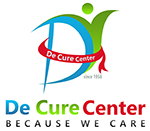
Stem-cell therapy is the use of stem cells to treat or prevent a disease or condition.
Bone marrow transplant is the most widely used stem-cell therapy, but some therapies derived from umbilical cord blood are also in use. Research is underway to develop various sources for stem cells, and to apply stem-cell treatments for neurodegenerative diseases and conditions, diabetes, heart disease, and other conditions.
With the ability of scientists to isolate and culture embryonic stem cells, and with scientists’ growing ability to create stem cells using somatic cell nuclear transfer and techniques to create induced pluripotent stem cells, controversy has crept in, both related toabortion politics and to human cloning. Additionally, efforts to market treatments based on transplant of stored umbilical cord blood have been controversial.
Stem cells are immature cells with prolonged self-renewal capacity and, depending on their origin, ability to differentiate into multiple cell types or all cells of the body. Transplantation of stem cells or their derivatives, and mobilization of endogenous stem cells within the adult brain, have been proposed as future therapies for neurodegenerative diseases. It may seem unrealistic, though, to induce functional recovery by replacing cells lost through disease, considering the complexity of human brain structure and function. Studies in animal models have nevertheless demonstrated that neuronal replacement and partial reconstruction of damaged neuronal circuitry is possible. There is also evidence from clinical trials that cell replacement in the diseased human brain can lead to symptomatic relief.

